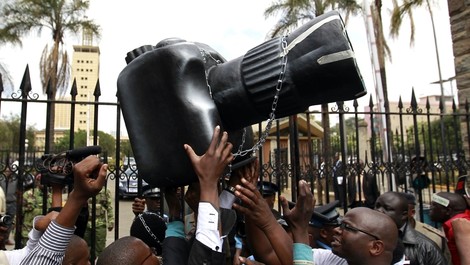Your podcast discovery platform
Curious minds select the most fascinating podcasts from around the world. Discover hand-piqd audio recommendations on your favorite topics.

piqer for: Global finds
Ciku Kimeria is a Kenyan author "Of goats and poisoned oranges" - (https://www.amazon.com/goats-poisoned-oranges-Ciku-Kimeria-ebook/dp/B00HBBWPI6), development consultant, adventurer and travel blogger (www.thekenyanexplorer.com). She writes both fiction and non-fiction focusing on African stories that need telling. She has worked on diverse pieces for various international and local publications including Quartz, Ozy, The East African etc. She has travelled to 45 countries – 16 of them in Africa. 153 countries to go and 63 territories!
"Of goats and poisoned oranges" has been extremely well received in Kenya and beyond. It tells the story of a Kenyan middle aged power couple and their complicated marriage. The novel explores issues of greed, revenge, betrayal and murder. It runs from the 1960s to 2013. It has been described as “Wicked, funny, poignant, wacky, human, a big ball of fun and danger”, “A unique and captivating book”, “Fun and intriguing”, “Impossible to put down once you start reading.”
She recently moved to Dakar, Senegal from Kenya to work on her second novel. She also works at as the Africa Communication Manager at a leading global strategy consulting firm.
She holds a B.S. in Management Science from MIT with minors in Urban Planning and International development studies.
The Western Gaze In African Photography
The World Press Foundation recently announced participants for the prestigious Joop Swart masterclass — the list did not include any African-born, Africa-based photographers. Of the 219 nominees, only 20 were from Africa and none were selected.
There are several factors behind this, including the fact that nominators themselves are based in localities that do not give them knowledge of the existence of African photographers. That is not a good excuse, though, as powerful organizations such as the World Press Photo (WPP) should be doing more to identify photographers in African countries given they do exist and stand most to benefit from networking and training opportunities.
By choosing who gets to be recognised, selected for training by respected photographers and photo editors, and networked into powerful media houses, such organisations have the power to direct who pictures and narrates our world.
What is most troubling about overlooking African photographers is that instead such initiatives "reward, once again, Europeans who fly into Africa to photograph locations with which they are not familiar, often through the same, unquestioned and stereotypical lens."
As an African storyteller, I know only too well of the lens through which mainstream media still sees my continent. Born in Kenya and now living in Senegal, I rarely see images in global media that represent the African experience in its full diversity. It's easy to find pictures of slums, garbage heaps, conflict, but rarely of positive images in western media. I turn to Instagram for that.
By leaving out photographers from African countries, and continuing to skew the selection process towards photographers who are from Europe and North America, the way the world pictures and imagines Africa and Africans will remain as they have historically been framed by the geopolitical west — as a location of a special brand of savagery and darkness to which those in the west have no parallel experiences or equivalent.
Stay up to date – with a newsletter from your channel on Global finds.
